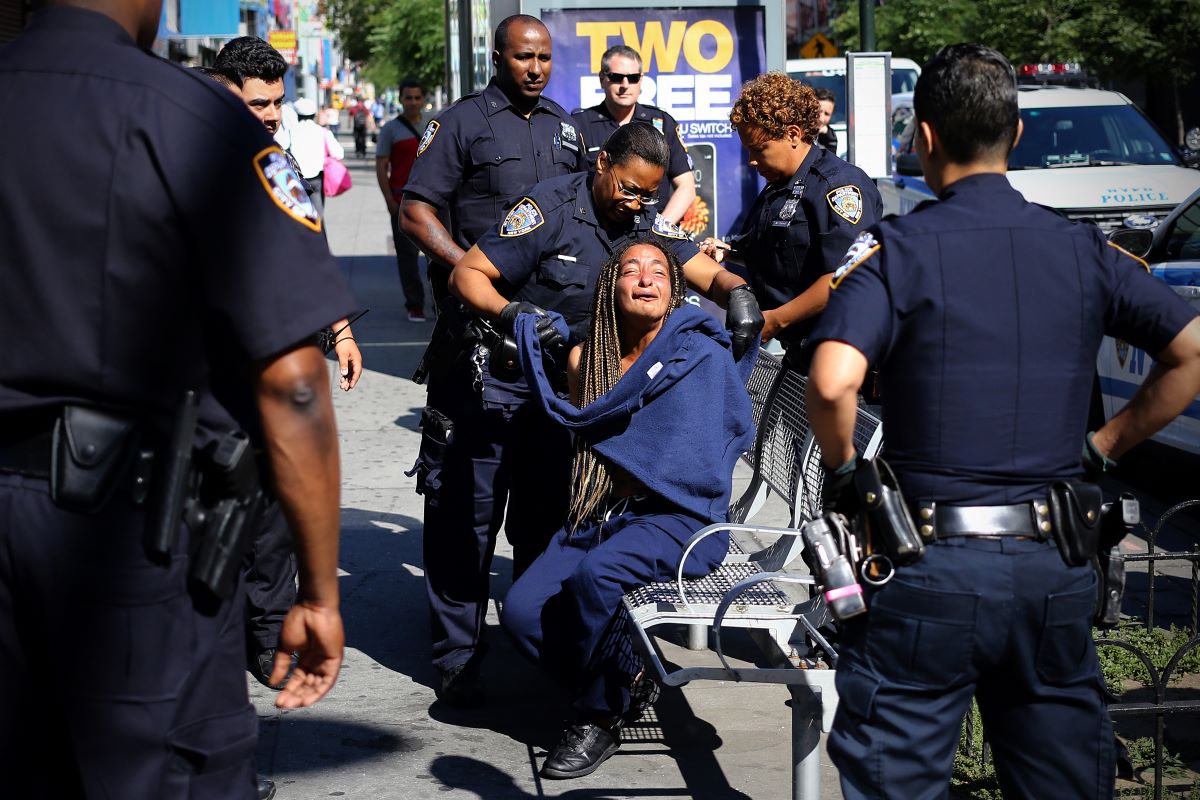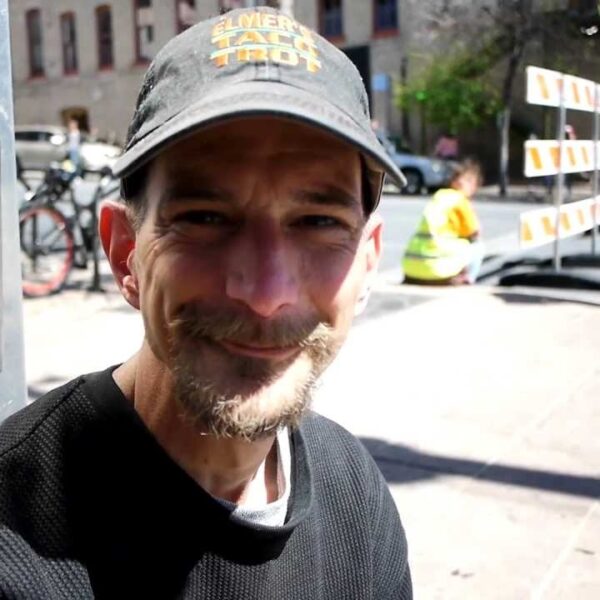National Nonprofit Is Touring the U.S. to Encourage Local Communities to Stop Treating Homelessness Like a Moral Failure
Over the next six months, The National Coalition for the Homeless, a nonprofit based in Washington, D.C., will visit cities nationwide where homelessness is a critical issue, such as Los Angeles, Denver, and Boston. The 2023 Local Power Tour plans to address local leaders and grassroots organizations about the need to build more affordable housing and safe shelter space instead of passing laws that criminalize homelessness.
“We have to change the narrative back to a place where people see homeless people as people who are very similar to themselves and not some sort of moral failure,” Donald Whitehead, Jr., the coalition’s executive director, told Invisible People in an interview. “We have to think about our unhoused neighbors in a way that allows us to be a community of collective goodwill.”
Criminalizing Homelessness Has Increased in Pandemic’s Wake
As homelessness increased around the U.S. during the Covid-19 pandemic, several states responded by passing laws that criminalize basic acts of survival. These include sharing food in public spaces, lying down, and camping on public property.
A report by the National Homeless Law Center from 2021 found that nearly every state has similar laws. Since then, states like Missouri, Texas, and Arizona have taken steps to increase penalties for people who need to sleep outside because there isn’t enough shelter space.
For example, Austin passed a law that prohibits people from public camping. Arizona lawmakers have put forth a couple of bills that seek to do the same thing during the state’s 2023 legislative session.
The Cicero Institute, a right-wing advocacy group, is one of the driving forces behind criminalizing homelessness.
Several bills that have been introduced are modeled after the Cicero Institute’s “Reducing Street Homelessness Act.” The act seeks to prohibit people from camping on state-owned lands and threatens to cut funding from local agencies that report a rise in unsheltered homelessness over a two-year period.
Whitehead said the momentum to criminalize homelessness shows that groups who advocate for people experiencing homelessness need to get ahead of the “negative misinformation” behind these bills. That’s why NCH plans to meet with grassroots organizations and people experiencing homelessness and equip these communities with the information they need to advocate on their own behalf.
“Never before have we seen so many of our neighbors forced to live outdoors without housing or the level of criminalization of daily survival activities,” Whitehead said.
At the same time, Whitehead worries that more people may become homeless as rent gains and home price increases continue to outpace wage growth.
Data from Redfin shows that the U.S. median home price stood at more than $386,000 as of February 2023, representing a more than 27% increase since the pandemic began in March 2020.
Meanwhile, the Bureau of Labor Statistics reports that real earnings decreased by 1.3% from February 2022 to February 2023 because of stubbornly high inflation and workers working fewer hours.
Eviction Filings Are on the Rise
To make matters even more complicated, Princeton’s Eviction Lab data shows that evictions increased by 50% in 2022 to nearly one million cases. Cities like Las Vegas, Houston, and Minneapolis led the way with greater than 100% increases in their local eviction filings.
“There’s been a reprehensible rise in rents and home prices across the country,” Whitehead said. “Corporations have taken advantage; mom-and-pop landlords have taken advantage. If you’re living on the margins, it’s almost impossible to stay on top. And that’s why we’re seeing a lot of newly homeless people on the streets.”
The latest federal data shows that more than 582,000 people experience homelessness on a given night in the U.S., an increase of nearly 3% since 2019. However, the number of families with children experiencing homelessness and the number of people experiencing unsheltered homelessness have both increased by greater than 10% over the same time.
“We are trying to organize people so we can actually get some changes,” Whitehead said. “We have never had the resources to address the extent of this issue. Our resources have always been myopic. We want to move away from myopic.”
How You Can Help
Handcuffs will never solve homelessness. The pandemic proved that we need to rethink housing in the United States. It also showed that many programs designed to address homelessness are rooted in law enforcement rather than social services.
Tell your representatives you support revamping how your city addresses homelessness. Handcuffs do not get anyone closer to stable housing. Instead, we must focus on compassionate solutions, the first step to ending homelessness.













